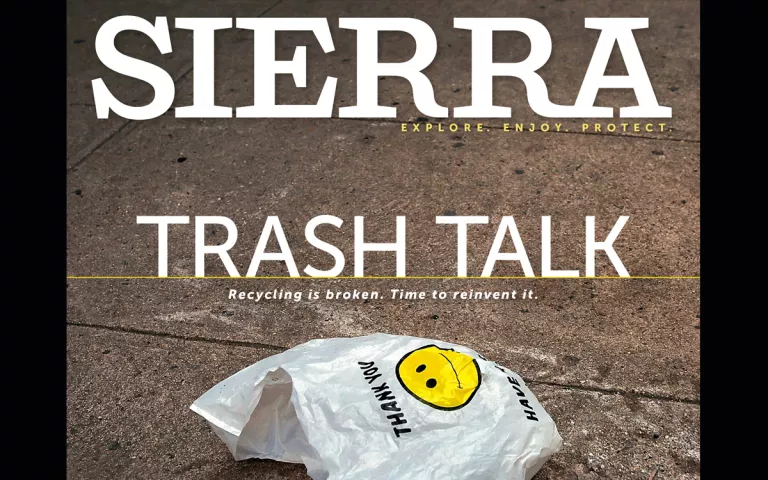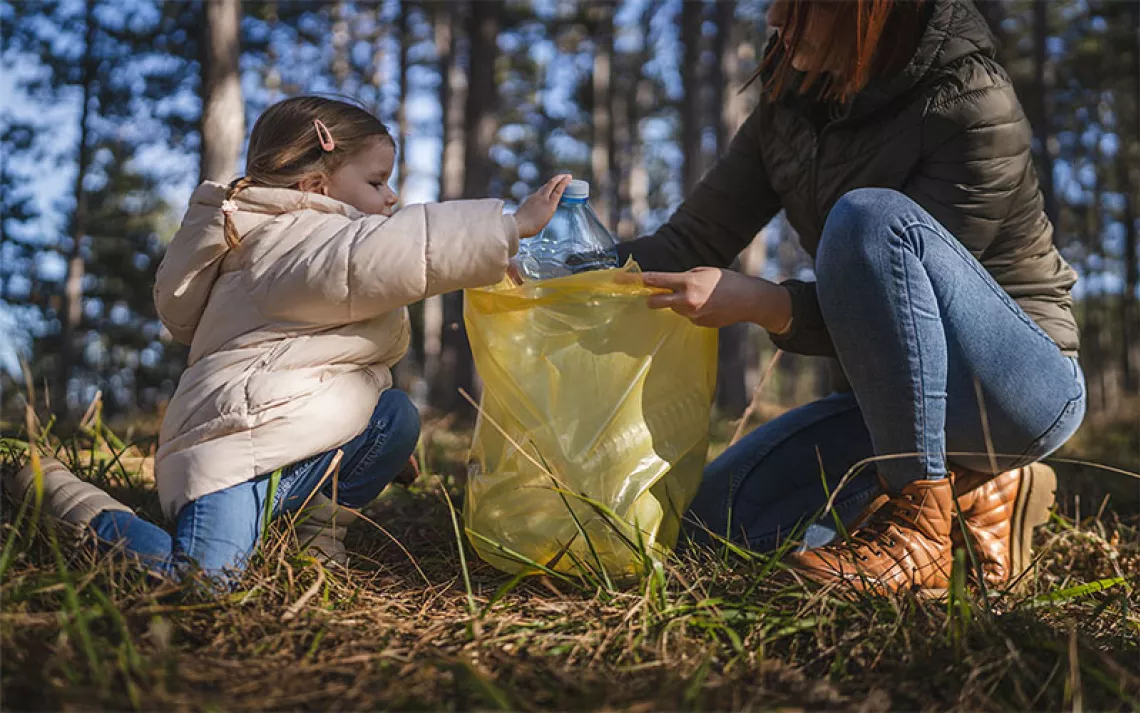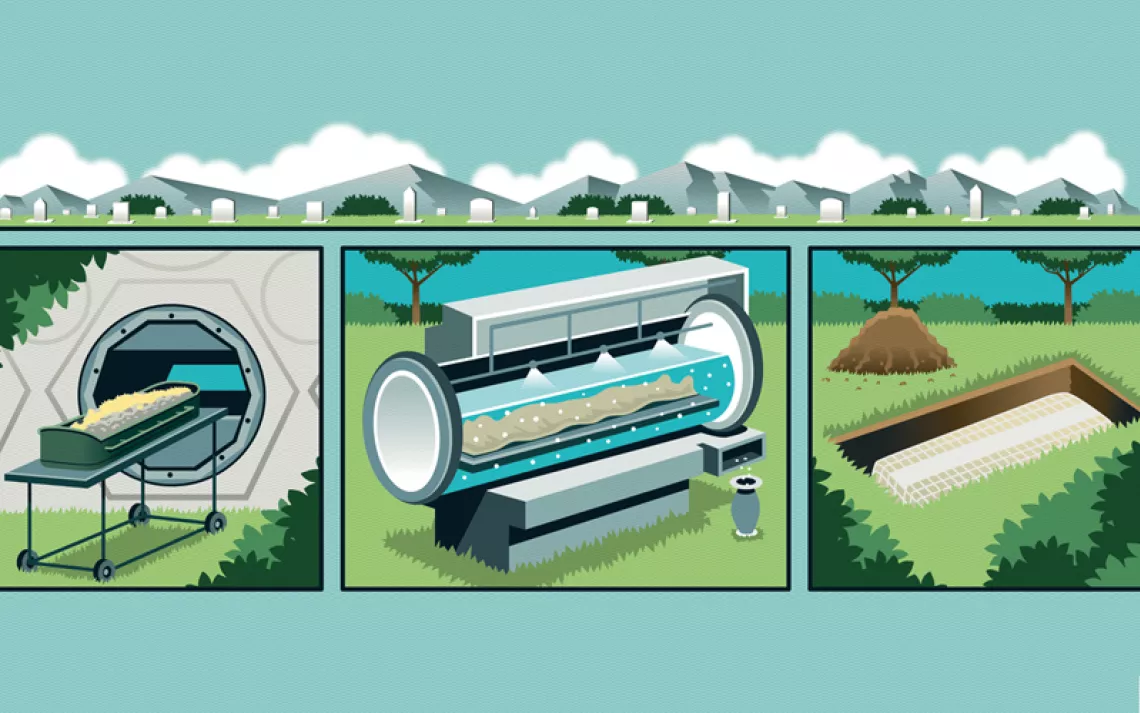You're Recycling Wrong
Back to the drawing board for everyone on how to take out the trash

I'm going to guess that you, a reader of Sierra magazine, are what they call an "avid recycler." You recycle everything you can. You flinch when you see someone throw a soda can into the trash and have even been known to fish it out and put it in the recycling bin.
Recycling's popularity with environmentalists is not mysterious. In a distressing world full of complicated choices, it appears to be an unalloyed good. While many of today's problems are enormous and apocalyptic, what we do with our refuse is something we can control, something we can practice every day to limit the harm caused by our own lifestyles. We can do the responsible thing, keep trash out of landfills, and use the same raw materials over and over in a virtuous circle.
I'm that guy too. I nag my children, correct my coworkers, and remove the little plastic film from tissue boxes. So when my grocery store stopped accepting used plastic bags for recycling, I had to ask why. "The company that used to take 'em went out of business," the manager said, "and we can't find anyone else who wants them."
Longtime contributor Edward Humes (author of Garbology) explains why in the anchor story of this issue's special section on recycling ("You Can't Recycle Garbage"): After taking our poorly sorted plastic and food-stained paper for a quarter century, China called it quits. A lot of the plastic crap we sent overseas never got recycled at all, it turns out—it just got dumped, with millions of tons of it flushing down China's rivers to feed the Great Pacific Garbage Patch. The six-pack rings those sad sea creatures get their heads stuck in might very well have come from the bins of well-meaning US recyclers. (Those rings, by the way, are not generally recyclable anyway. Like most plastic that's not #1 or #2 bottles, they're garbage.)
Although China's turnabout has been widely portrayed by the media as a crisis for recycling, Humes sees it as an opportunity to remake our domestic industry. We already have models for that reinvention, starting with community recycling operations that flourish by going back to basics: taking clean, well-sorted materials only and refusing the rest. And US businesses are eager for the recycled feedstock. Humes cites the example of CarbonLite, a US firm that has an innovative method for recycling plastic beverage bottles and whose growth is limited by a lack of raw materials—too many bottles still end up in landfills.
Reinventing recycling, however, may require abandoning our old goal of recycling everything. A new study (see "When Recycling Isn't Worth It") finds that the total environmental costs of recycling sometimes outweigh those of landfilling. Remember the mantra "Reduce, Reuse, and Recycle"? There's a reason recycling is third in that list—reducing and reusing are far more important. You don't have to recycle the plastic bag you don't use.
This article appeared in the July/August 2019 edition with the headline, "You're Recyling Wrong."
 The Magazine of The Sierra Club
The Magazine of The Sierra Club



